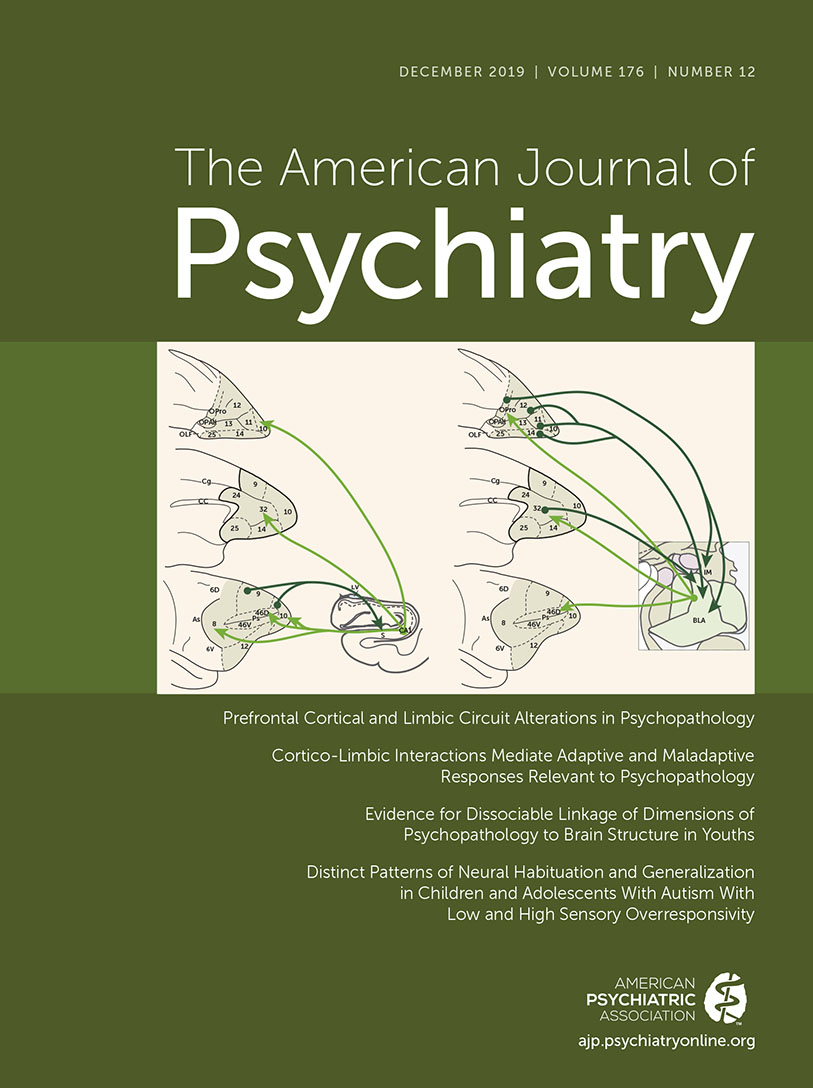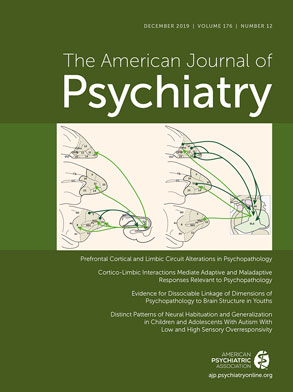to the editor: In recent years, numerous models have been developed to predict the risk of dementia for individual persons (
1,
2). Most of these models include sophisticated markers that are available only in specialized clinical care settings, such as during neuropsychological tests (
1,
3). Although these tests yield additional value in predicting dementia, they are not readily available outside memory clinics, and even memory clinics face various issues, as mentioned by Naparstek and colleagues (
3). In view of these shortcomings, we welcome the suggestions by Naparstek and colleagues in which they emphasize that the inclusion of computerized cognitive tests in predictive models extends their applicability to settings where resources are more limited, such as primary care.
For our models, we were unable to consider inclusion of computerized cognitive tests because data collection for this study went back to 1995. At that time, computerized cognitive measures were not yet available, and in order to facilitate quantification of change in cognition over time, similar procedures were used to assess cognition during subsequent study waves. We do acknowledge, though, that repetitive testing is susceptible to learning effects. Nevertheless, the time between research center visits within the Rotterdam Study generally spans 3–4 years, in part diluting these retest effects.
Furthermore, we wholeheartedly agree with Naparstek and colleagues that researchers should share data within an open science framework. At the same time, the benefits for science of sharing individual participant data have to be weighed against the potential risks of revealing participants’ identities, as recently restated in European legal and ethical regulations (
4). In our case, because of these stringent privacy restraints, we were unable to place data from the Rotterdam Study in a public repository. Fortunately, efforts are under way to increasingly enable on-site federated analyses, thereby maintaining participant privacy (
5).
Finally, we agree that inclusion of computerized cognitive tests in prediction models has great potential to support the use of predictive models for dementia in daily clinical practice worldwide. To this end, it is important to note that cultural and geographic factors influence cognitive testing, which may limit the use of conventional, Western neuropsychological tests in culturally and linguistically diverse populations. Therefore, generalizable (computerized) cognitive measures that are culture fair and feasible to use in different settings are warranted (
6). These developments will also provide a strong stimulus to meet the urgently required translation of existing models to low- and middle-income countries (
2), where the largest predicted increases of dementia cases are expected in coming decades (
7). This ultimately facilitates accurate identification of individuals at high risk for dementia across the globe, which is essential in order to target strategies that intervene in the earliest phase of the disease process to postpone or even prevent the onset of dementia.

